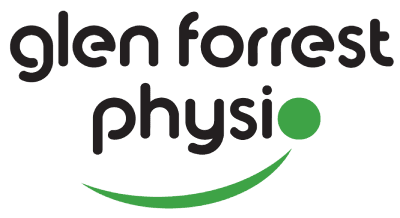Triathlon is my sport of choice, I admit I live and breathe it, and with the new season about to start I am starting to get excited! The training is beginning, and muscles are feeling a bit sore, I am eating a bit more and am feeling more tired than usual. I know for me that this is all very normal. But as a new athlete embarking on a fresh career in your chosen sport, you might not know what to expect.
Being a beginner athlete can be an exciting and rewarding experience, but it is important to have realistic expectations about what is to come. So, what should a beginner athlete expect in those first days, weeks and months of starting a new sport?
Initial Challenges: As a beginner, you may find everything is a huge challenge. Certain skills and movements may be difficult to perform. Your body might not be accustomed to the physical demands of your chosen sport or activity. You should expect some initial challenges and be prepared to work through them.
Soreness: You’ll likely experience muscle soreness, especially in the first few weeks. This is a normal response to your muscles adapting to new movements and increased activity. It’s often referred to as delayed onset muscle soreness (DOMS) and typically subsides as your body adjusts. Warm showers, stretching and massage can all be helpful. The most important thing though is taking time to rest and recover in between training sessions.
Progress: With consistent training, you will see progress over time. This could include improvements in strength, endurance, flexibility, and skill. Keep track of your progress which will help you stay motivated as you see how far you’ve come.
Plateaus: There may be periods where your progress seems to stall. This is normal and happens to athletes at all levels. Plateaus can be overcome with adjustments to your training routine, such as increasing intensity, changing exercises, or focusing on weaknesses. They can often also be overcome by using a period of good quality rest and recovery.
Injuries: While training, there’s a risk of injury, especially if you push too hard too soon before your body has had a chance to adapt. Be mindful of your body and listen to any signs of pain or discomfort. Proper warm-up, cool-down, and stretching routines can help reduce the risk of injury. And don’t ignore injury and hope it will go away. Seek input from one of the friendly physiotherapists at Glen Forrest Physiotherapy to keep you or help get you back on track.
Nutritional Changes: As an athlete, your nutritional needs may change. You will almost certainly want to eat more. But sporting performance also needs appropriate fuel. Expect to pay more attention to your diet, focusing on fuelling your body for both performance and recovery. Consult with a sports nutritionist if necessary.
Time Commitment: Training as an athlete can be time-consuming. Depending on your sport or activity, you may need to dedicate several hours per week to training and practice. Be prepared to manage your time effectively. And don’t forget to prioritise rest and recovery. Training is only one half of the performance equation, rest and recovery is the other.
Mental Toughness: Developing mental toughness is an important part of athletic training. Expect to face mental challenges such as self-doubt, frustration, and the need for discipline. Developing a strong mindset is just as important as physical training.
Coaching and Guidance: Seek guidance from experienced coaches or trainers, especially when you’re starting out. They can provide valuable feedback, help you set realistic goals, and design a training program tailored to your needs. Your physiotherapist has particular skills in helping you to be strong and injury resistant for your sport.
Enjoyment and Fulfillment: Despite the challenges, expect to find enjoyment and fulfillment in your training. Many athletes find a deep sense of satisfaction in pushing their limits and achieving their goals.
Setbacks: It’s important to understand that setbacks are a part of the journey. You may encounter setbacks due to injury, illness, or life circumstances. It’s how you bounce back from these setbacks that often defines your progress as an athlete.
Community and Support: Depending on your chosen sport or activity, you may become part of a community of like-minded individuals who can provide support, motivation and camaraderie. In triathlon, there are a wide variety of local Clubs who offer weekly training sessions, novice and race specific programs, friendship and general good vibes.
Remember that progress in sport is not always linear, and everyone’s journey is unique. Stay patient, stay committed, and enjoy the process of becoming a better athlete.
Simone Roach
Physiotherapist
Simone graduated from Curtin University with a Bachelor of Science (Physiotherapy) and is also a qualified Pilates matwork and reformer instructor.
Simone believes strongly that physical activity and self-care are the key to a long, healthy and happy life. She works collaboratively with her clients to ensure that they can focus on the possibilities of their situation, rather than their limitations.
She has a special passion for showing seniors that aging does not come with an inevitable decline in function, having witnessed many seniors finish Ironman triathlons alongside her.
Outside of work, Simone is heavily involved in the triathlon community as an athlete, coach, technical official and club office holder. In addition, she coaches cycling within the Darling Range Sports College Triathlon program.
She also loves to cook which allows her to share her appreciation of delicious foods with her husband and their three cats.
Other Qualifications
* Athletics Australia Accredited Level 2 Running Coach
* Triathlon Australia Accredited Level 2 Development Coach
* Triathlon Australia Technical Official
Clinical Interests
* Running and Triathlon related injuries
* Sports injuries
* Strength and conditioning to support athletic and sporting goals
